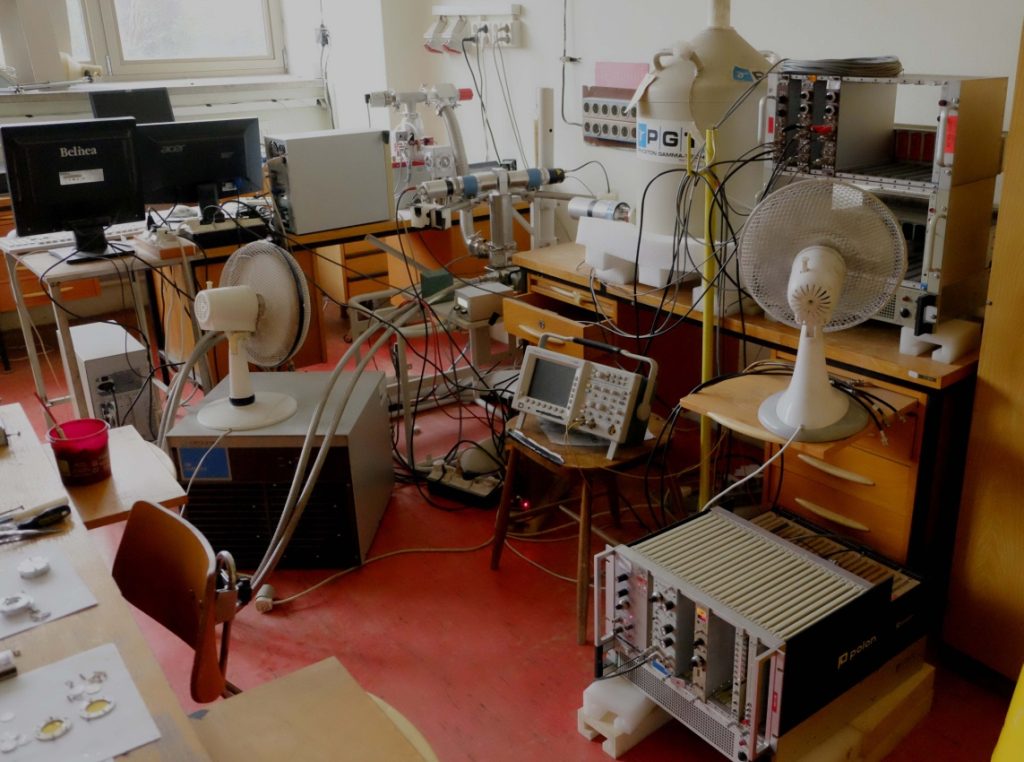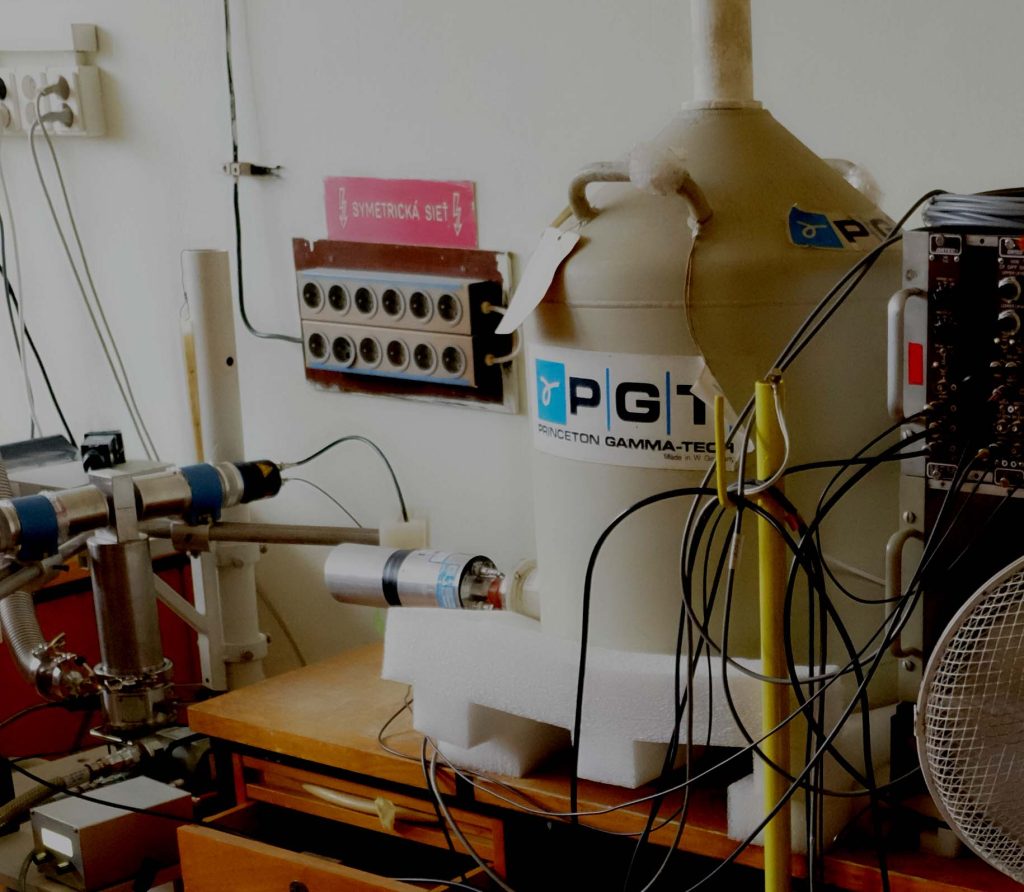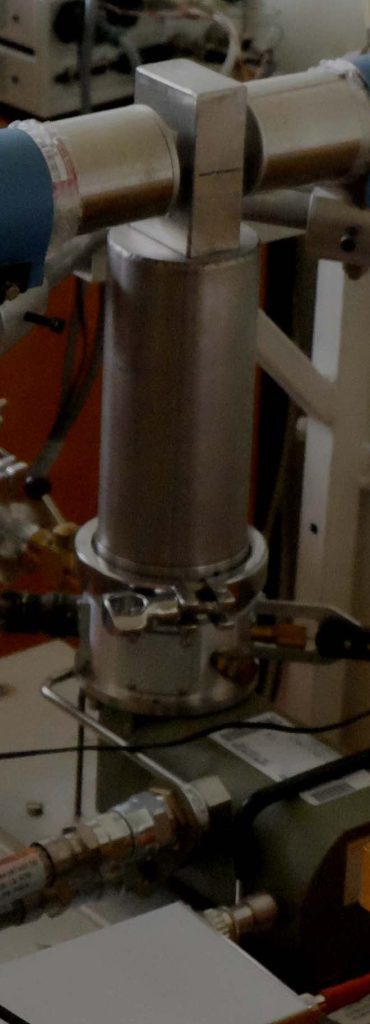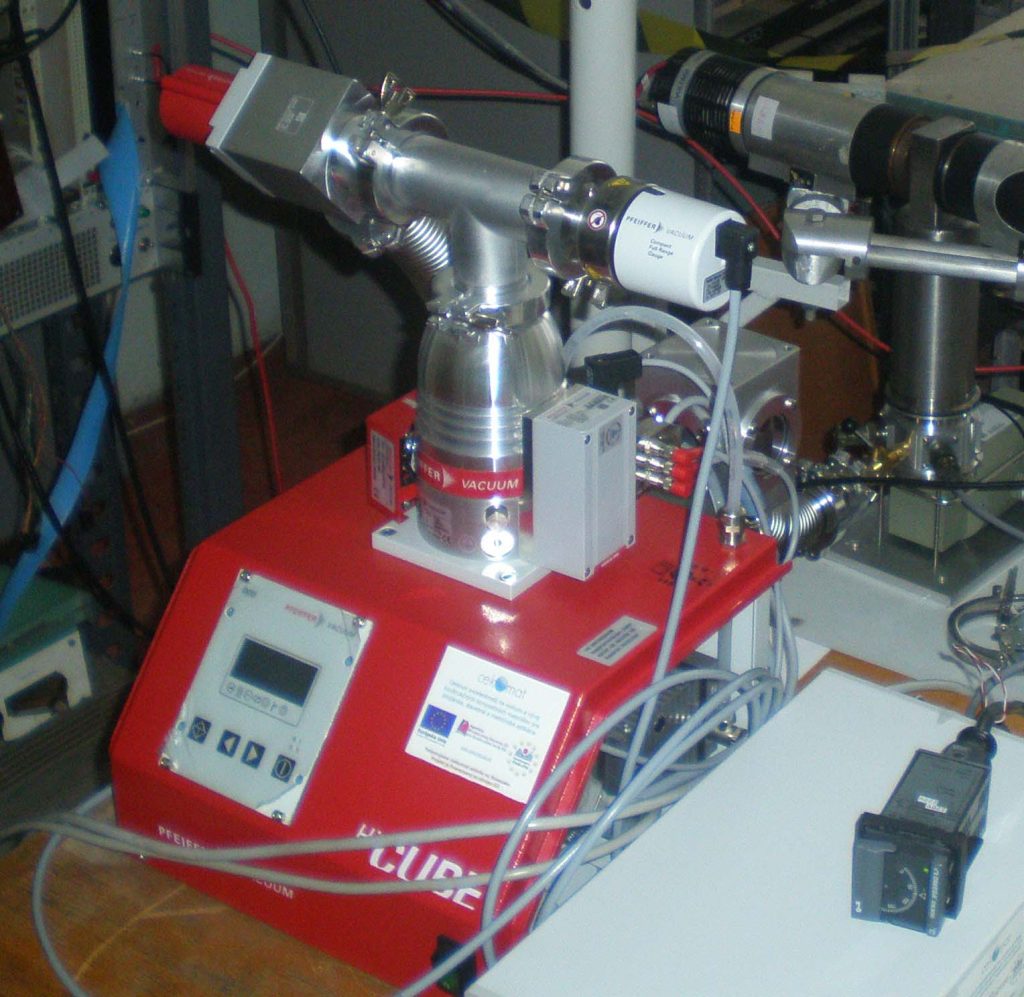| Head of department: | RNDr. Ondrej Šauša, CSc. |

Positron annihilation lifetime spectrometer
Positron annihilation lifetime spectrometer (PALS), 320 ps time resolution (FWHM), for measuring the positron and positronium lifetimes in various substances. From the measured lifetimes and their temperature dependences, it is possible to determine cavity sizes in the range of 0.1 – 50 nm (space between molecules), distributions of free-volume sizes, coefficients of temperature expansion of free volumes as well as technologically important temperatures such as glass transition temperature Tg or other temperatures of structural transitions below the Tg and crystallisation temperatures.

The sorption and desorption processes of the materials confined in the internal open pores of the matrix can be studied from free-volume changes. The comparison of bulk and cofined states of matter can be made also.
PALS technique allows to investigate changes in free-volume over time under defined conditions (temperature, pressure) and so monitor under certain circumstances also the evolution of chemical reactions or the behavior of solidification and melting.
Non-destructive way of analyzing of samples is a great advantage of this technique, which finds new and new uses in the fields of physics, chemistry and biology.
Doppler broadened annihilation line spectrometer

Doppler broadened annihilation line spectrometer based on HPGe semiconductor detector and appropriate electronics allows to determine the energy of annihilation photons or magnitude of projection of electron momentums to direction of detection at the site of positron-electron annihilation in the investigated material.
This technique is sensitive to changes in the electron structure in the investigated materials. In combination with PALS, as a two-parameter system (AMOC), it locates more accurately the site where the annihilation occurred (pore surface or bulk sample). This spectrometer also allows the investigation of three-photon annihilation process.
Vacuum and refrigeration technology

The JANIS CCS 450 refrigerator, s with adjustable temperatures in the sample chamber in the range of 15-300 K and with an integrated equipment for heating up to 500 K with the same geometry, allows the study of the process of positron and Ps annihilation at a wide temperature range. The outside of the refrigerator was modified for PALS.

High vacuum system HiCube from Pfeiffer from Pfeiffer up to 5.10-7 mbar is required for low-temperature measurements and also allows annihilation measurements without the presence of gases in pores.




